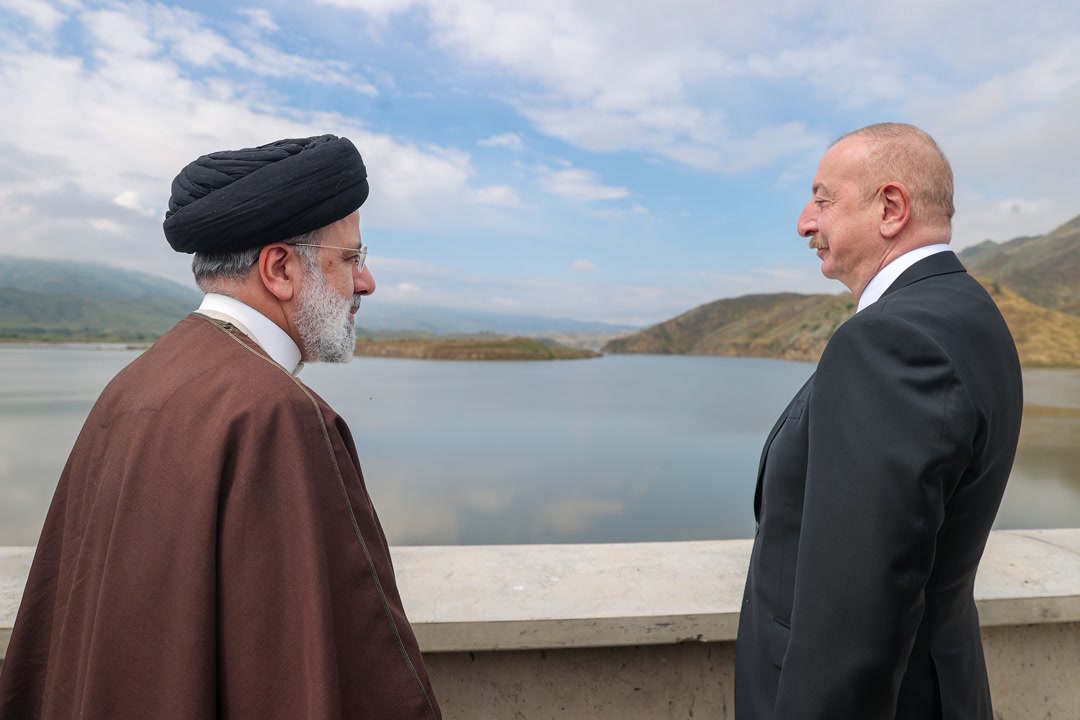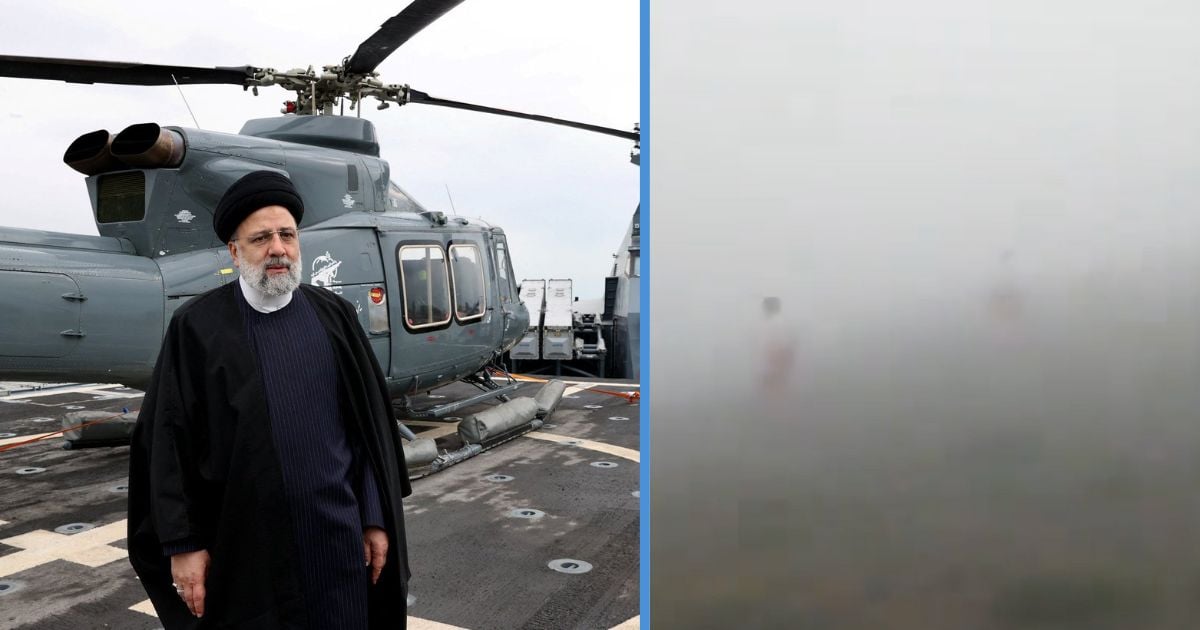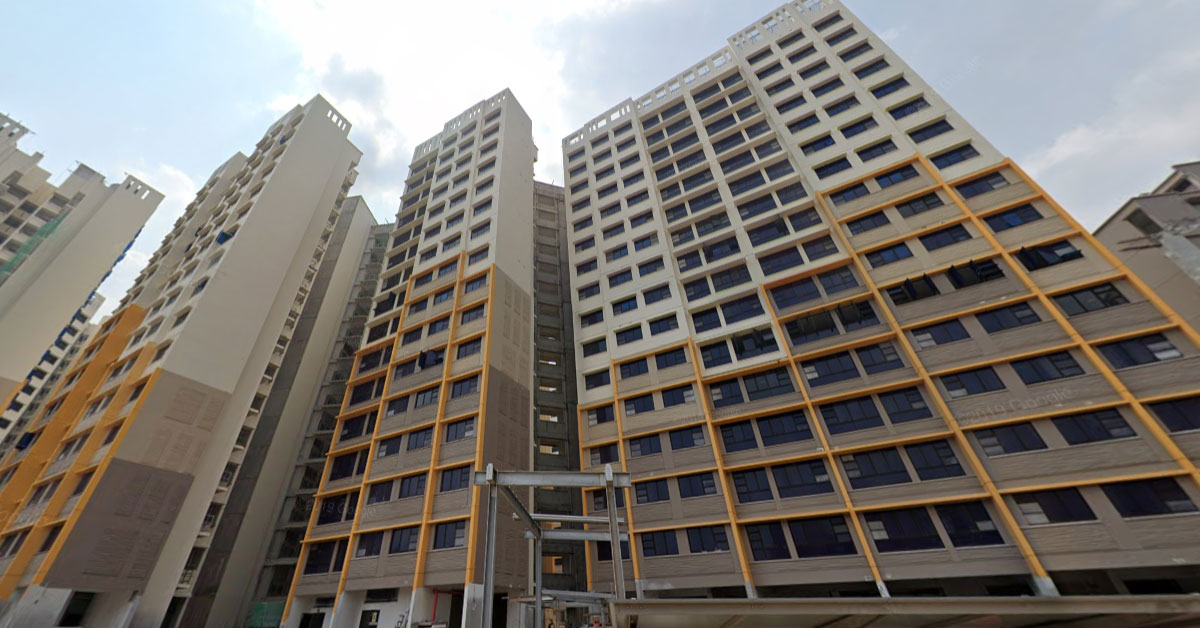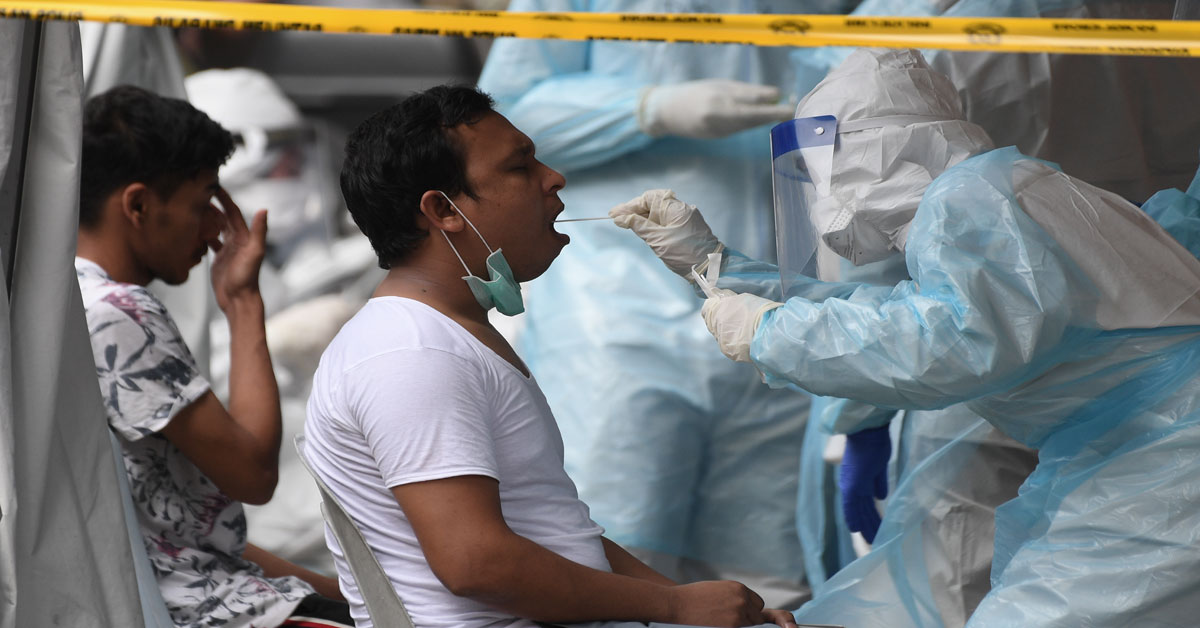It seems that Iran hasn’t been able to catch a break from tragedy. Aside from longstanding tensions with the US, and Israel’s alleged bombing last month, many news outlets are closely monitoring the search and rescue efforts following a helicopter crash on Sunday (19 May).
Why is the helicopter crash so important? Because there are very important people on it and it could potentially worsen inter-state political tensions.
Here’s everything we know so far.
What Happened?
A helicopter was reported to have suffered a “hard landing” according to Iranian state TV on Sunday. It reportedly went down between Jolfa and Varzaqan. This is a region on the border of Azerbaijan and Iran.
The Islamic Revolutionary Guard Corps (IRGC) pinged a signal from the helicopter and a crew member’s phone, which helped detect their exact location, said the Islamic Republic News Agency (IRNA).
Who’s in the helicopter?
- Iran’s President: Ebrahim Raisi
- Iran’s Foreign Minister: Hossein Amirabollahian
- East Azerbaijan Governor: Malek Rahmati
- Representative of Iran’s Supreme Leader to East Azerbaijan: Ayatollah Mohammad Ali Ale-Hashem
The IRNA reported that President Raisi and Foreign Minister Abdollahian were coming back from a ceremony for the opening of a dam on the Iran-Azerbaijan border.

There was a convoy of two other helicopters. Along the way, they lost contact with the President’s carrier.
An Iranian political analyst Mohammad Marandi explained to Al-Jazeera News that because the weather was challenging during the travel, “it could be that the helicopter pilot didn’t want to risk it, and he swiftly brought down the helicopter”.
However, he didn’t completely shut down the idea of it being a deliberate or targeted attack, saying that “it could be something else”.
The two other helicopters fortunately arrived at their destinations safely.
Bad weather for Search and Rescue
The Iranian State Media posted on X about the current search efforts.
As you can see from the video (or not), they are experiencing extremely poor weather conditions including heavy rain, which is making it difficult for the authorities to find the helicopter.
Iran’s Minister of Health Bahram Eynollahi said that the crash site is foggy and so there’s low visibility
What’s worrying is that the conditions of the passengers are unknown. BBC News said that for now, there haven’t been reports on whether contact has been made.
If they really crashed in the forested mountainous areas, rescue teams are on a time crunch. It’s hard to last out too long with temperatures dropping.
For now, the IRNA reported that there are military drones and dozens of rescue teams, as well as emergency crews making search and rescue efforts sent by neighbours Iraq and Azerbaijan. Turkey also offered to help with new heat-scanning technology.
Al-Jazeera also reported that in a statement by the Russian Ministry of Emergency Situations, Russia pledged two planes of 47 professional mountain rescuers to help on Monday.
President Raisi’s Helicopter Finally Found
According to Al-Jazeera, Iranian media outlets reported that the Red Crescent Society, a search and rescue and emergency relief service under Iran, found President’s Raisi helicopter and it doesn’t look good.
The Red Crescent reached the crash site and saw that the entire cabin of the helicopter was significantly damaged and burned, with no signs of survivors.
This comes 13 hours after the crash was first reported, and the story is still developing.
What does the US think?
In what seems like an awkward reaction to tragedy, the US Republican senator Rick Scott seemed glad that Raisi’s life is in danger. In a brutal post on X, he mentioned that nobody misses dictators like him, and his supposed death may help the Iranian people flourish.
Other than that, there’s been no peep out of The White House.
Al-Jazeera reported from Washington DC that US officials haven’t given any comments nor offered any aid since President Biden was briefed about the situation. However, they know that the US State Department is closely monitoring it.
This isn’t surprising given that the crash is happening at a very sensitive time.
US and Iranian officials met last week in Oman to discuss the tragedy in Gaza. We also can’t forget that Iran’s economy has been suffering for years due to US sanctions, and their diplomatic relations are basically non-existent.
US-Iran’s Troubled History
According to Al-Jazeera, US and Iran have tensions dating back to the 1980s. In case you didn’t know, the US cut off diplomatic ties with Iran after the 1979 Islamic Revolution when the current Iranian Supreme Leader Ayatollah Ali Khamenei took over and made sure the country wasn’t dependent on the West.
Not only that, Iranian students took 52 Americans hostage and held them for 444 days.
Here’s the rough timeline:
- 1980-1988: US supported Iraq in the Iran-Iraq war. Both sides lost hundreds of thousands of people.
- In 1988: The US Navy shot down an Iranian civilian plane and all 290 people on board died. They also added Iran to its “State Sponsors of Terrorism” list.
- In 2020: Tensions hit a peak when the US killed Iranian General Qassem Soleimani, the head of Iran’s IRGC’s Quds Force, in a drone strike in Baghdad, Iraq.
- 1990s to Now: Never-ending sanctions that limit Iran’s ability to develop its weaponry, limit nuclear activities and economic progress.
Iran’s political analyst also told Al-Jazeera that the US sanctions are partly responsible for the poor engineering in Iran’s civil aviation industry.
Supreme Leader Khamenei expressed his concerns about the tragedy, urging everyone to pray for those affected and the search and rescue teams, said Al-Jazeera.
He also hopes that there will be no disruption in the work of the country.
Apparently, Supreme Leader Khamenei and President Raisi are pretty close with each other. In case you didn’t know, Iran has a unique government that mixes both religious theocracy and democracy. They work hand-in-hand to rule Iran.
Ultimately, the Supreme Leader, who is indirectly elected and controls domestic, security, defence and foreign affairs, has greater power compared to the President.
However, President Raisi was reported to have 40 years of political experience and is a strong contender for Khamenei. In fact, he was going to potentially be Khamenei’s successor.
How do we know? President Raisi got into power in 2021 with an uncontested election, and he was reportedly popular among political elites who respect him for his embodiment of ultraconservative ideals.
In the eyes of the public? Not so much.
The public is trying to diminish his power and get him out because of his ultraconservative rules. President Raisi is also known for his intense curb-down of youth-led protests against repressive laws like the compulsory hijab and any form of anti-government protests. This is made worse by his inability to get the economy back on track.
Khamenei and Raisi have been obvious in their united opposition against US and Israel. Other than that, their ruling ideals are aligned too – anti-corruption, anti-western and ultra-nationalistic.



